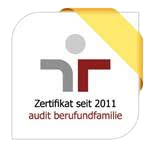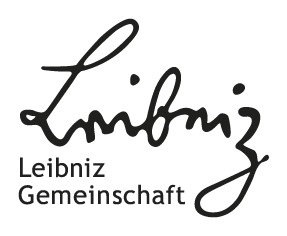
The mission of the Leibniz Centre for Agricultural Landscape Research (ZALF) as a nationally and internationally active research institute is to deliver solutions for an ecologically, economically and socially sustainable agriculture – together with society. ZALF is a member of the Leibniz Association and is located in Müncheberg (approx. 35 minutes by regional train from Berlin-Lichtenberg). The institute also maintains locations in Dedelow and Paulinenaue.
From 2026, ZALF will be expanded to include an “Innovation Center for Agricultural System Transformation” (IAT), which will focus on research in, with, and about regional living labs in agricultural landscapes. The initial living labs will be established in five pilot regions in Brandenburg and Hesse and aim to promote innovation in agricultural systems in collaboration with various stakeholders. 17 new working groups will be established, which will conduct research following co-design principles (https://www.zalf.de/en/struktur/iat/Pages/default.aspx).
The service group “Socio-ecological Monitoring for Living Labs” supports the scientific work of the IAT in the five pilot regions through systematic monitoring of ecological and social processes in cooperation with scientists and stakeholders. Ecological monitoring is carried out through integrated recording of soil, crops, and landscape characteristics using multiple sensors, mobile measuring systems, and other available data. Social processes are recorded through panel studies, regional surveys, social network data, and qualitative interviews, among other methods. The integrated long-term observation of ecological and social dynamics in the living labs is carried out through systematic data collection, data documentation, linking, and data publication. The working group develops and provides an important permanent basis for the IAT's analyses and contextualization of research. The work is based on close cooperation with the service group for research data management, the IAT service group for data and modeling infrastructures, as well as IAT research groups for methods development. The services support the research of ZALF and the three partner universities in Hesse (Giessen, Kassel, Geisenheim) in the five living lab regions.
We are offering a full-time position starting January 1, 2026, initially limited to two years with the prospect of permanent employment at our location in Müncheberg.
Head of the working group “Socio-ecological Monitoring for Living Labs” (m/f/d)
43-2025
Your tasks:
- Technical management and personnel responsibility for the working group (approx. 3 permanent employees)
- Active cooperation with service groups and stakeholders in the living labs
- Conceptual design and implementation of systematic monitoring for ecological and social processes in the five pilot regions of the IAT
- Development of an integrated data pipeline for monitoring, in cooperation with other research and service groups
- Documentation, curation, linking, and publication of heterogeneous research data
- Preparatory data analysis, visualization, and training
- Participation in the central research data management of the IAT according to open science and FAIR principles
- Promotion of open science and research data management at ZALF with the service groups
- Participation in the design of the IAT and data services at ZALF
Your qualifications:
- Doctorate in a scientific discipline related to ZALF
- Relevant experience in data collection, data analysis, and research data management
- Relevant expertise in the design and implementation of ecological and/or social science monitoring systems with a spatial reference
- Understanding of the national and international scientific environment and experience in writing scientific publications, project proposals and statements
- Ability to work in an interdisciplinary field and to communicate between different scientific disciplines
- High degree of initiative, willingness to cooperate, excellent communication and teamwork skills in an interdisciplinary and international environment
- Fluent spoken and written English (C1), at least basic knowledge of German (B2) and willingness to further develop skills
- Knowledge of how to handle sensitive data (ethical aspects, data protection, anonymization)
Desirable qualifications
- Leadership skills, management training, and experience in managing teams
- Knowledge of data analysis technologies (e.g., Python, R, databases, text analysis)
- Experience in working with sensor technology and measurement technology in landscape research
- Knowledge of developing and conducting social science surveys and panels
What we offer:
- Long-term perspective and payment in accordance with the TV-L collective agreement for the federal states, up to E-14
- The opportunity to help build a new organizational unit with a lot of creative freedom
- An interdisciplinary working environment with independent work and autonomous action
- A collegial and open-minded working atmosphere in a dynamic research institution
- Career advancement through further training, leadership development, and coaching
- Work-life balance, certified by the Work and Family Audit
- Excellent connections to Berlin with a job ticket (Germany ticket subsidy)
Women are particularly encouraged to apply. Applications from severely disabled persons with equal qualifications are favored. The filling of the position in part-time is possible in principle. Please send your application preferably online (see button online application below). For e-mail applications, create a PDF document (one PDF file, max. 5 MB; packed PDF documents, archive files like zip, rar etc. Word documents cannot be processed and therefore cannot be considered!) with the usual documents, in particular CV, proof of qualification and certificates, stating the reference number 43-2025 until 15th of September 2025 to (see button e-mail application below).
Interviews are expected to take place on October 6, 2025 in Münchberg.
If you have any questions, please do not hesitate to contact us: Dr. Holger Döring (holger.doering@zalf.de · Tel. 033432/82-499) and Prof. Dr. Katharina Helming (helming@zalf.de).
For cost reasons, application documents or extensive publications can only be returned if an adequately stamped envelope is attached.
If you apply, we collect and process your personal data in accordance with Articles 5 and 6 of the EU GDPR only for the processing of your application and for purposes that result from possible future employment with the ZALF. Your data will be deleted after six months.


